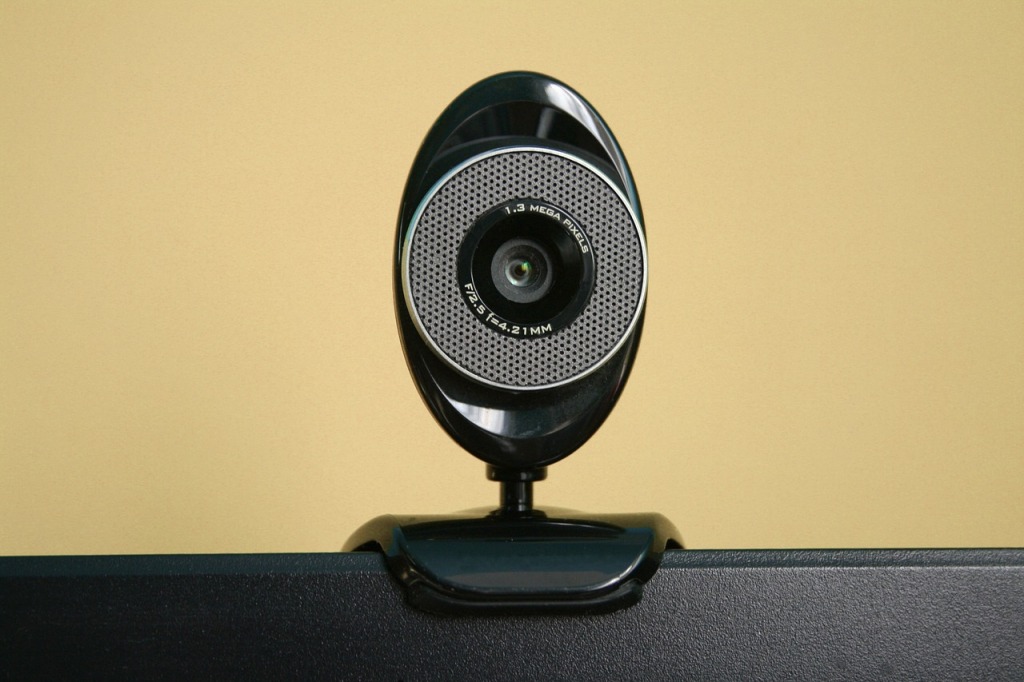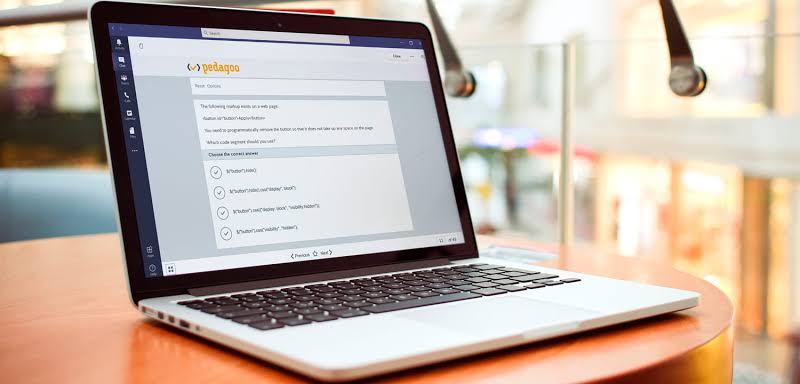Have We Confused Surveillance With Assessment Of Student Learning?

- Miss Ai
- 12 Jun, 2024
Have We Confused Surveillance With Assessment Of Student Learning?
Somehow I had been blissfully unaware of Respondus Lockdown Browser until last week, when several students came to the library asking if we had this software available on our computers. If you’re not familiar with this product, Respondus is one of several LMS-integrated cheating-prevention tools. In simple terms, it shuts down a student’s Internet browser while they are taking a test in an online class environment, such as Canvas or Blackboard. One of the students who asked about Respondus said something that raised the hair on the back of my neck.
“I need a webcam,” they said. “I have to take the quiz with my webcam on, and there can’t be any movement in the background.”
What the hell? I thought. What are they talking about?
Recording Students During Online Tests
After doing some digging through an e-mail chain, I found a message from the campus eLearning Administrator with instructions for students taking tests with Respondus.
You will be required to use LockDown Browser with a webcam which will record you while you are taking the three module tests. Your computer must have a functioning webcam and microphone. A broadband connection is also required.
You will first need to review and agree to the Terms of Use.
The Webcam Check will confirm that your webcam and microphone are working properly. The first time the Webcam Check is performed on a computer, Adobe Flash Player will require you to select Allow and Remember.
Next, you will be asked to take a picture of yourself.
After that, you will be required to show and take a picture of a government-issued ID such as a driver’s license with your picture clearly displayed. If you don’t have a driver’s license, you can use your student ID card with your picture displayed.
Click “Start Recording” and slowly tilt/pan your webcam so a brief video can be made of the area around your computer. Make sure you show your desk, what’s underneath your desk, And a panorama of the room you are in. (If the webcam is built into the monitor, move it around as best you can to show the areas described.)
As a librarian who cares deeply about student privacy, all of this makes me want to throw up. If I understand this correctly, students must:
Accept Terms of Use (which I couldn’t find on the Respondus website, so I’m not sure what, exactly, students are agreeing to)
Take a picture of themselves
Share their government-issued ID (which would include their date of birth, address, height, weight, and other personal details)
Share whatever is visible around their desk and workspace which, if they’re at home, could include any number of extremely personal items.
Can We Agree That Asking A Student To Show “What’s Underneath Your Desk” Is Particularly Perverse?
However the benefits of this invasive procedure, according to Respondus, are numerous—easy to integrate with existing learning platforms, money saved on printing costs, increased efficiency, superior confidence in the accuracy of test results, and so on.
Beyond privacy, what are some other concerns? After some brief searching, I found a presentation from 2012 where two researchers at Central Washington University found that Respondus was incredibly easy to manipulate to steal student data—hopefully, this has changed. The following year, the same presenter, Donald Moncrief, gave a follow-up presentation about the exact methodology they used (which they withheld the previous year, probably to prevent folks from following their steps).
My outrage is a little delayed. Respondus has been in business for ten years. Their website boasts that their software is used to proctor 50 million exams annually and they work with 2,000 institutions in 50 different countries. But here I am, angry as ever, concerned that educators have gotten carried away with technology without considering its implications. And, as usual, my gripe is about assessment.
What Are We Really Measuring?
Respondus offers regular training webinars for instructors. Here are the outcomes for an upcoming webinar:
Each training will cover, from the instructor's perspective:
How to use LockDown Browser to prevent digital cheating in proctored testing environments
How to use Respondus Monitor in non-proctored environments, to protect exam integrity and confirm student identity
How Respondus Monitor provides greater flexibility for when and where tests are taken
Efficient review of the assessment data collected, including student videos
Best practices and tips for success with both applications
A chance to ask questions
I am particularly confused by the portion in bold (my emphasis added). How is the surveillance data collected considered assessment data? Isn’t the assessment data the actual test results (e.g., whether or not students could meet the learning outcomes of the quiz or test)? I suppose if you saw clear evidence of academic dishonesty in the surveillance data (for example, the student had the textbook open on their desk but it was a “no book” test), then it would invalidate the assessment results, but it would not be the assessment data itself.
Maybe they’re just using “assessment” in an inaccurate way. Maybe it’s not a big deal. But I’m inclined to believe the word “assessment” has a particular meaning about student learning, and most accrediting bodies would agree.
Accreditation And Surveillance
Colleges and universities rarely lose accreditation over facilities. You can educate students in a cornfield, in a portable building, or in a yurt without running water or electricity—provided you have assessment data that shows that student learning outcomes were met for the program. You can’t award degrees without assessment data. You have to show that your students learned something. Seems reasonable, no?
So here’s my worry. Are we confusing surveillance with assessment data? Do we think that recording students during exams will appease accreditors? “Look, see! They didn’t cheat. They answered all of these test questions, and they got good scores.”
I understand the occasional need for a controlled testing environment, especially in high-stakes exam situations for professional certification (I’m think of the NCLEX for nurses, for example). I don’t understand controlled testing for formative assessment, especially for short quizzes in a first-year general education course. Even in a completely online course, I’m not sure I see the value in putting students through surveillance measures for quick knowledge checks of essential facts. When it comes to summative assessment of your course’s essential learning outcomes, couldn’t you meet the learning outcomes in some other way that prevented simple cheating? What possibilities might open up if you invited your students to deeply process the material, connect to it in their own way, and show you the meaning they’ve made from it?
I think that there is no greater indication of an instructor’s values than how they spend time in a classroom. If what you truly value is assessing student learning in a tightly controlled, surveilled environment—why not just take the quiz in a computer lab classroom where you can watch all students at once?
Is Surveillance Necessary For Accreditation Of Online Degrees?
My first answer to this question is, I’m not sure, and I’d like to learn more about this. I know that some fully online programs require students to take exams at proctored testing sites (e.g., by using a campus testing center at a nearby college or university). This practice is held up to accrediting agencies as proof of the program’s commitment to academic honesty. Of course, there is some healthy skepticism about this. In a 2011 article about online exam procedures, researchers suggested that requiring a once-per-semester proctored exam was a “token effort to ensure academic honesty.”
I took a quick glance through the Western Association of Schools and Colleges (WASC) Postsecondary Accreditation Manual and I couldn’t find the word proctor anywhere in the document. Or the word cheat or the phrase academic honesty (the word honesty is used—to describe the governance procedures of the institution). While it is important to demonstrate student learning outcomes are being met through valid means (e.g., institutions need some reasonable assurance that students are doing their own work), I could not find evidence that this accrediting body specifically requires proof of proctoring or cheating prevention. Does anyone know if other accrediting standards indicate otherwise?
Leave a Reply
Your email address will not be published. Required fields are marked *
Search
Category
Gallery
Tags
Social Media
Related Posts
TEAS Quick Tips Prior to Exams
- Miss Ai
- 13 Jun, 2024












